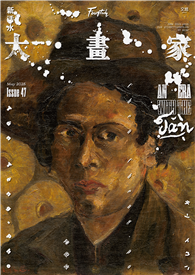Desiderius Erasmus (ca. 1466 - 1536), the illegitimate child of a Rotterdam priest and a physician's daughter, grew up to become the greatest figure in the northern Renaissance and one of the most celebrated men in Europe--a scholar of such vast learning, sacred and secular, that both royalty and universities petitioned for his services. In this painstakingly researched and well-written biography, a noted scholar traces the life and works of Erasmus from the depths of monastic obscurity to his prominent role as one of the leading humanists of the day, and a central figure of the Reformation. We learn of Erasmus's childhood and early youth, his years as an itinerant scholar, his sojourns in France, England, Switzerland, and Italy, his close friendship with Sir Thomas More, and his theological disputations with Martin Luther. The author provides in-depth analysis of Erasmus' mind and character, and perceptive discussions of his writings, including the 1509 Lucianic satire In Praise of Folly (in the Latin, Encomin moriae, a punning allusion to More, with whom Erasmus was staying when he wrote it), which turned out to be one of his most popular and enduring works. Huizinga also discusses Erasmus' extremely influential (though controversial) translation of the New Testament from Greek into elegant Latin, which provided theologians with a much more accurate text than had previously been available. A thinker of timeless relevance, Erasmus, through his writings, exercised enormous influence on subsequent Western thought and culture. This edition of Johan Huizinga's classic biography is sure to appeal to students, scholars, and general readers.
| FindBook |
有 1 項符合
Erasmus and the Age of Reformation的圖書 |
 |
Erasmus and the Age of Reformation 作者:Huizinga 出版社:Wipf & Stock Publishers 出版日期:2010-10-01 語言:英文 規格:平裝 / 197頁 / 21.3 x 14 x 1.3 cm / 普通級 |
| 圖書館借閱 |
| 國家圖書館 | 全國圖書書目資訊網 | 國立公共資訊圖書館 | 電子書服務平台 | MetaCat 跨館整合查詢 |
| 臺北市立圖書館 | 新北市立圖書館 | 基隆市公共圖書館 | 桃園市立圖書館 | 新竹縣公共圖書館 |
| 苗栗縣立圖書館 | 臺中市立圖書館 | 彰化縣公共圖書館 | 南投縣文化局 | 雲林縣公共圖書館 |
| 嘉義縣圖書館 | 臺南市立圖書館 | 高雄市立圖書館 | 屏東縣公共圖書館 | 宜蘭縣公共圖書館 |
| 花蓮縣文化局 | 臺東縣文化處 |
|
|
圖書介紹 - 資料來源:博客來 評分:
圖書名稱:Erasmus and the Age of Reformation
|









